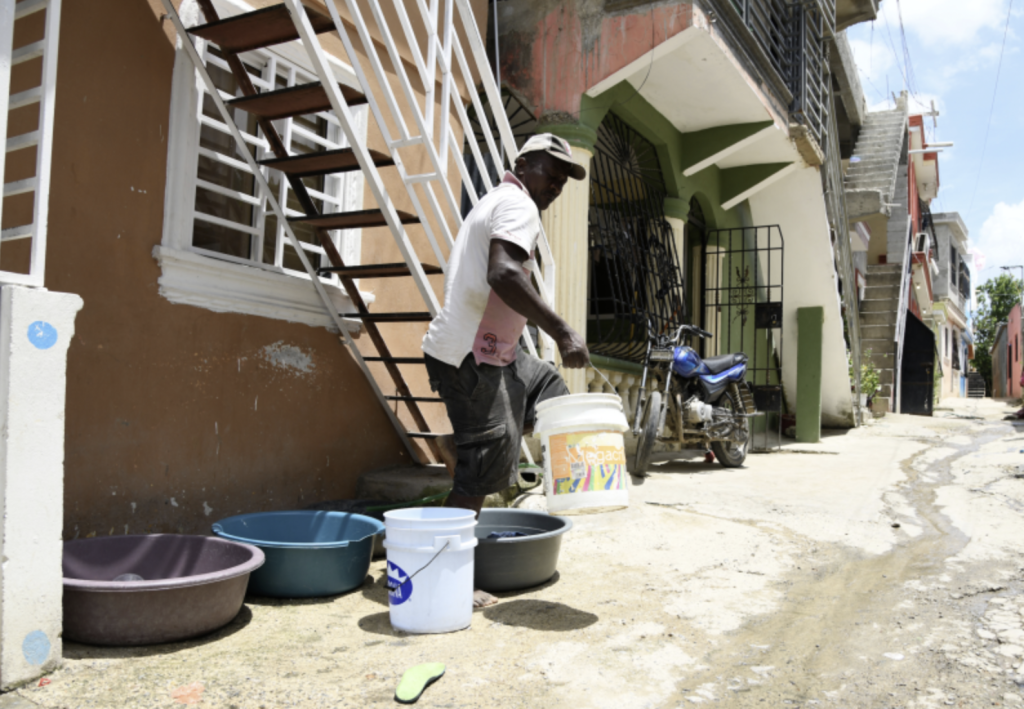
A recent report in Listin Diario highlights how despite having large rivers and mountain areas with water sources, providing water for human use is the most important issue impacting countries in Latin America, especially amid climate pressures.
Despite its six major hydrographic regions and a network of dams and aqueducts, the Dominican Republic faces growing water inequality, particularly in the face of intensifying climate challenges, Listin Diario reports.
In 2024, the country produced 51 million cubic meters of potable water. However, a new report by Listín Diario highlights stark territorial disparities in its distribution. The island nation is grappling with a seasonal drought, made worse by climate change, which has significantly reduced rainfall across several regions.
Access to water remains precarious for much of the population. While 78% of Dominicans rely on the public water network, only 26% enjoy continuous 24-hour service. The most severely affected areas are in the southwest and northwest, where subregions such as Valdesia, Enriquillo, Cibao Norte, and Higuamo are at high risk of drought. These regions are also among the most vulnerable socioeconomically, with widespread poverty and limited access to essential resources.
Production is concentrated in major urban centers like Santo Domingo and Santiago. In contrast, provinces in the south—including Pedernales, Elías Piña, and Independencia—record the lowest water volumes. Currently, nine of the country’s 31 provinces are experiencing what officials call “chronic scarcity,” a figure projected to rise to 16 by the end of 2025.
The agricultural sector, which consumes 82% of the country’s water, faces scrutiny for inefficiencies. Up to 70% of irrigation water is lost due to outdated systems. In response, the Dominican government is pushing forward with the Pacto por el Agua 2021–2036, a $8.5 billion initiative aimed at upgrading national water infrastructure over 15 years.
Still, longstanding institutional fragmentation poses a major hurdle. Eighteen different agencies are involved in water management, with no central authority, resulting in overlapping roles and poor coordination.
Experts such as engineer Milton Martínez González are calling for the creation of a unified national water authority. Such an entity, they argue, would prioritize the public good, tackle overexploitation and pollution, and address the growing impact of climate change on the country’s already strained water resources.
Listin Diario reports that the most impacted areas are the Northwest and the Southwest. The Ministry of Mines and the mining sector are insisting on the exploitation of gold mines in the Southwest using rain water. Environmentalists say the exploitation will diminish and contaminate vital water sources for the population.
Read more:
Listin Diario
DR1 News
29 September 2025

